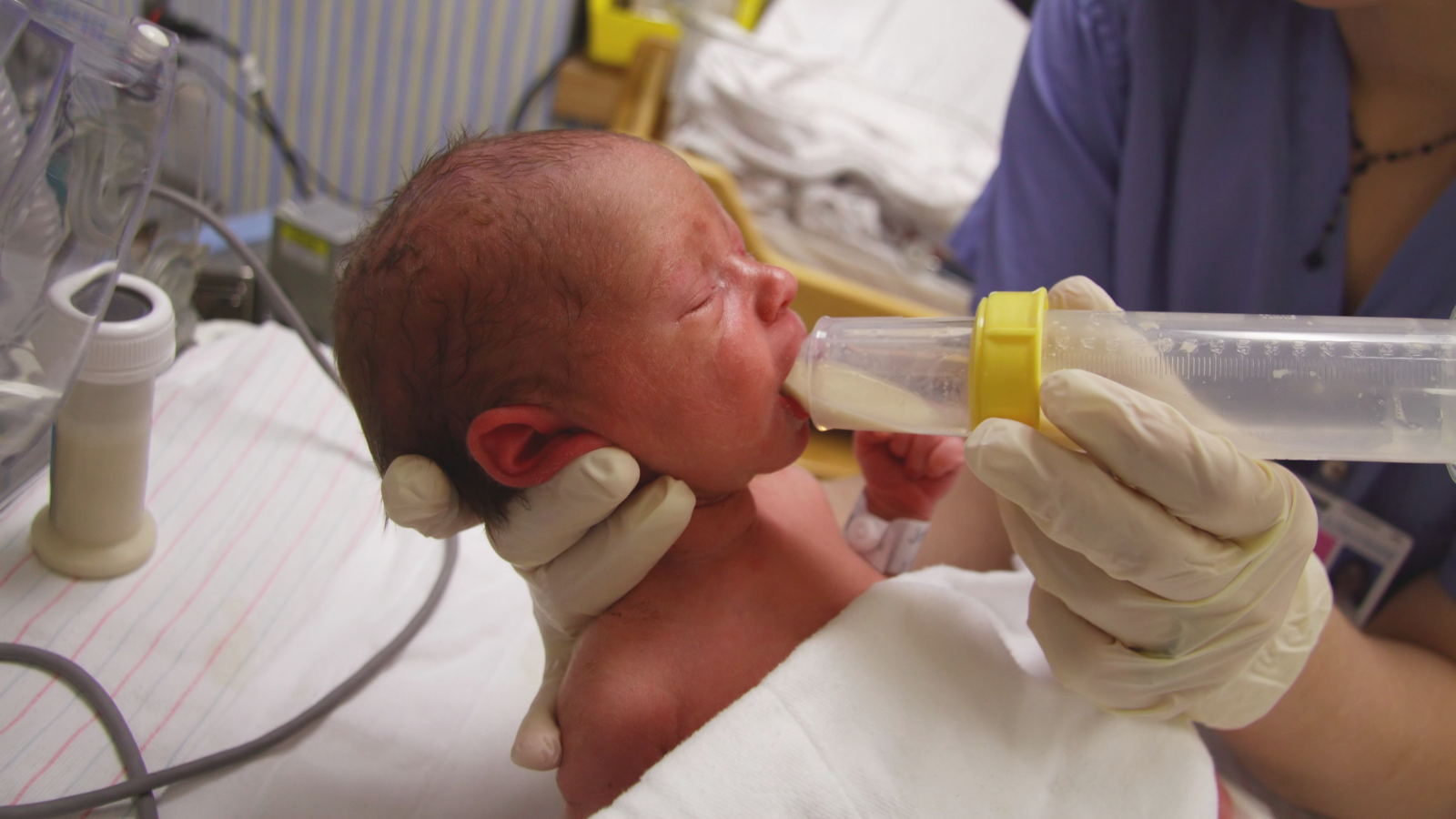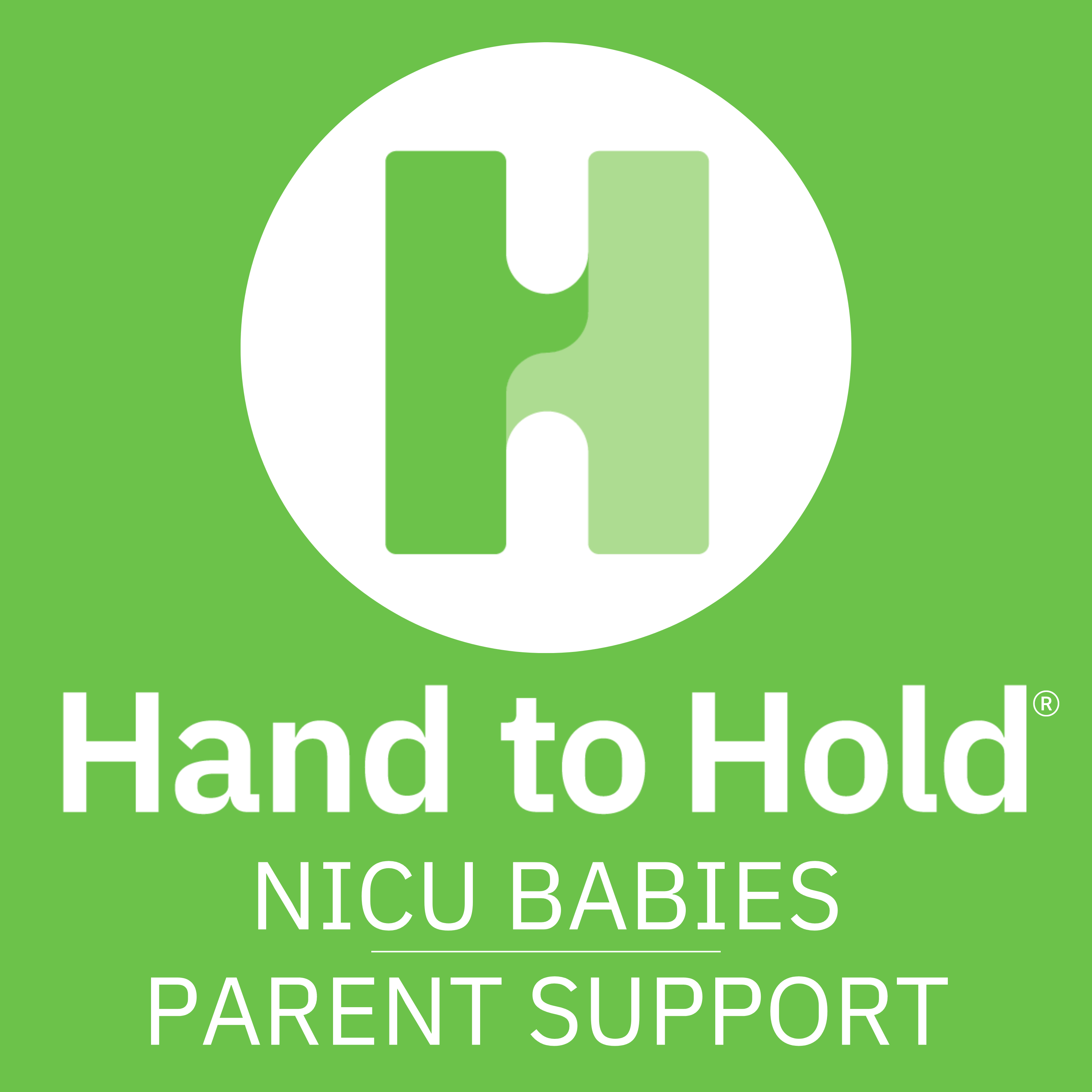It’s good to become familiar with the types of nutrition your baby will receive while in the NICU.

by Melinda J. Elliott, MD, FAAP
Chief Medical Officer, Prolacta Bioscience
Pregnancy is a special journey in life. Every parent wants an idyllic pregnancy without complication resulting in the birth of a happy healthy baby. But what happens if your baby is among the approximate 10% of babies in the US who are born prematurely?1 At this rate, if your baby wasn’t born prematurely, you likely know someone whose baby was, or will be, born prematurely. Certain conditions such as high blood pressure or diabetes can develop during pregnancy, putting a woman at higher risk of delivering her baby prematurely.2 Some other factors increasing the likelihood of an early delivery include:
- Prior premature delivery
- Carrying multiples (twins or more)
- Having a baby with a known anomaly or birth defect2
Babies born prematurely, especially those born more than a month before their due date, require specialized care only available in a hospital’s neonatal intensive care unit (NICU). While parents always hope for the best, in the event your baby is born prematurely, it’s best to become familiar with the NICU that your baby may need to spend time in, and even more so with the significance of and type of nutrition your baby will receive while in the NICU.
The Importance of Breast Milk Nutrition in the NICU for Premature Babies
Human breast milk is highly recommended for premature babies. It is sometimes difficult for moms to initiate and maintain lactation when a baby is born prematurely. In case you cannot produce milk or your milk supply is low after your baby is born, you may want to choose a NICU that offers donor milk as a supplement to your milk so you can ensure your baby gets the benefits of human milk. In preterm infants, breast milk is associated with reduced infection and inflammatory disease, enhanced neurodevelopmental outcomes, and healthy early growth.6
Because premature babies are deprived of nutrition normally received in utero during the third trimester, they require up to 20% to 40% more calories than a full-term healthy baby. Meeting their nutritional needs is vital to premature infants’ short- and long-term development, because everything is still growing—lungs, eyes, brain, and body, and they need ample nutrition to reach their full potential [desired growth and other developmental goals]. Nutrition (through milk) becomes premature infants’ medicine and affects their overall growth and development.
LISTEN NOW: NICU NOW EPISODE 26 – MILK IS MEDICINE WITH DR. MELINDA ELLIOTT
When Breast Milk Alone is Not Enough; Fortifiers Provide Required Nutrition for Your Baby
Although breast milk is the ideal food for these fragile infants, breast milk alone doesn’t contain enough calories or protein to meet the nutritional needs of the smallest infants. This is why fortifiers are very important!
For catch-up growth, premature infants often need a fortifier added to mother’s own milk (MOM) or donor breast milk to give them extra calories, protein and minerals. While all fortifiers in the NICU are referred to as “human milk fortifiers,” or “HMFs,” there are actually two types of fortifiers given in the NICU: those made from cow milk and those made from donor breast milk.
Fortifiers provide additional calories and protein for your baby. While cow milk–based fortifiers have been used for many years, research suggests cow milk–based fortifiers are linked to an increased risk of complications, many of them life-threatening, because premature babies have trouble processing cow milk protein.
Thus, it’s important for premature babies to receive breast milk–based fortifiers to avoid complications and help get these babies home sooner and healthier.
The timing of when premature babies receive fortifiers is also crucial to know. The neonatal care team in the NICU should begin adding fortifier to a baby’s feeding protocol from the first days of life to ensure optimal results.
The risk associated with cow milk–based fortifiers is often the reason why fortification is delayed in the NICU.7 Yet evidence shows the sooner fortification with breast milk–based fortifiers begins, the better chances these fragile infants have of achieving healthy growth rates, as well as proper development of the gut, lungs, brain, and body.4
READ NEXT: LET’S TALK ABOUT HUMAN MILK FORTIFIERS: WHAT IS IT AND WHY DOES MY BABY NEED IT?
The Importance of Donor Breast Milk–Based Fortifiers
Fortifiers made from 100% donor breast milk are the gold standard in NICU nutrition for safely feeding babies.
Compared to cow milk–based fortifiers, 100% donor breast milk–based fortifiers that have been processed using vat pasteurization to ensure safety and maintain important bioactivity (as part of an exclusive human milk diet) have been show in clinical trials to decrease the incidence of serious, and sometimes life-threatening, health conditions associated with prematurity, including:
- Bronchopulmonary dysplasia (BPD)11,8,9
- Late-onset sepsis11,8,10
- Retinopathy of prematurity (ROP)11,8,9
- Necrotizing enterocolitis (NEC)3,6
As well as reduced rates of feeding intolerance7 and shorter hospital stays, going home sooner and healthier!6,7
What to Ask the NICU Team About Breast Milk–Based Fortifiers
While MOM/donor breast milk nutrition plus 100% breast milk–based fortifiers is the best for preterm babies, not all donor breast milk fortifiers are created equal. Each company uses different quality and safety standards. Some companies are even making products that have not been clinically proven safe or effective.
To ensure your baby is receiving tested breast milk–based fortifiers, have a conversation with your NICU team.
Here are a few questions to help guide the conversation:
- What type of fortifiers are you using: breast milk- or cow milk-based?
- What brand of fortifiers are you using? Is there solid clinical evidence for this brand of fortifiers?
- Are these fortifiers produced under Food and Drug Administration reviewed standards to protect the health and safety of my baby?
LISTEN NOW: NICU NOW EPISODE 20 – ADVANCING FORTIFICATION FOR THE TINIEST BABIES
Advocating for Appropriate Nutrition in the NICU
Should your baby require a stay in the NICU as a result of being born prematurely, be sure to ask your NICU team about feeding your baby breast milk–based fortifiers that can either be used in conjunction with MOM or a 100% donor breast milk–based formula, instead of cow milk.
I encourage NICU parents to advocate for well tested 100% donor breast milk–based fortifiers for their baby versus cow milk–based fortifiers to help avoid common complications of prematurity.
Breast milk–based fortifiers are offered in many Level III and IV NICUs across the US. If your NICU does not offer them, you can advocate for your baby to receive these clinically tested, vat pasteurized, 100% human milk–based fortifiers if your baby is hospitalized after being born prematurely.
References:
- Preterm birth. Centers for Disease Control and Prevention. Accessed January 24, 2021. https://www.cdc.gov/reproductivehealth/maternalinfanthealth/pretermbirth.htm
- What are the risk factors for preterm labor and birth? National Institutes of Health. Accessed January 14, 2021. https://www.nichd.nih.gov/health/topics/preterm/conditioninfo/who_risk
- Levels of medical care for your newborn. March of Dimes. Accessed January 19, 2021. https://www.marchofdimes.org/baby/levels-of-medical-care-for-your-newborn.aspx
- Huston RK, Markell AM, McCulley EA, Gardiner SK, Sweeney SL. Improving growth for infants ≤ 1250 grams receiving an exclusive human milk diet. Nutr Clin Pract. 2018;33(5):671-678. doi:10.1002/ncp.10054
- American Academy of Pediatrics. Breastfeeding and the use of human milk. Section on Breastfeeding. Pediatrics. 2012;129(3):e827-e841. doi:10.1542/peds.2011-3552
- Sullivan S, Schanler RJ, Kim JH, et al. An exclusively human milk-based diet is associated with a lower rate of necrotizing enterocolitis than a diet of human milk and bovine milk-based products. J Pediatr. 2010;156(4):562-567. doi:10.1016/j.jpeds.2009.10.040
- Abrams SA, Schanler RJ, Lee ML, Rechtman DJ. Greater mortality and morbidity in extremely preterm infants fed a diet containing cow milk protein products. Breastfeed Med. 2014;9(6):281-285. doi:10.1089/bfm.2014.0024
- Assad M, Elliott MJ, Abraham JH. Decreased cost and improved feeding tolerance in VLBW infants fed an exclusive human milk diet. J Perinatol. 2016;36(3):216-220. doi:10.1038/jp.2015.168
- Delaney Manthe E, Perks PH, Swanson JR. Team-based implementation of an exclusive human milk diet. Adv Neonatal Care. 2019;19(6):460-467. doi:10.1097/ANC.0000000000000676
- O’Connor DL, Kiss A, Tomlinson C, et al. Nutrient enrichment of human milk with human and bovine milk-based fortifiers for infants born weighing <1250 g: a randomized clinical trial. Am J Clin Nutr. 2018;108(1):108-116. doi:10.1093/ajcn/nqy067. Published corrections appear in Am J Clin Nutr. 2019;110(2):529. doi:10.1093/ajcn/nqz091 and Am
- O’Connor DL, Kiss A, Tomlinson C, et al. Nutrient enrichment of human milk with human and bovine milk-based fortifiers for infants born weighing <1250 g: a randomized clinical trial. Am J Clin Nutr. 2018;108(1):108-116. doi:10.1093/ajcn/nqy067. Published corrections appear in Am J Clin Nutr. 2019;110(2):529. doi:10.1093/ajcn/nqz091 and Am
BIO
 Listen to the all new NICU Babies, Parent Support podcast, a podcast for NICU parents just like you. Each episode is designed to help you understand and process your emotions, fears and questions related to your child’s NICU journey.
Listen to the all new NICU Babies, Parent Support podcast, a podcast for NICU parents just like you. Each episode is designed to help you understand and process your emotions, fears and questions related to your child’s NICU journey.
Listen now or find it wherever your get your podcasts.
About the author
 Dr Melinda Elliott joined Prolacta in 2016 as senior director, clinical education and professional development, and is currently the company’s chief medical officer. She serves as the voice of the patient, working to ensure the needs of premature infants are being articulated and identifying relevant treatment and product opportunities. She also continues to serve as a clinical neonatologist with the Pediatrix Medical Group.
Dr Melinda Elliott joined Prolacta in 2016 as senior director, clinical education and professional development, and is currently the company’s chief medical officer. She serves as the voice of the patient, working to ensure the needs of premature infants are being articulated and identifying relevant treatment and product opportunities. She also continues to serve as a clinical neonatologist with the Pediatrix Medical Group.
After holding professional and clinical positions at The Johns Hopkins Hospital, Union Memorial Hospital, and Franklin Square Hospital Center, she joined the faculty at The Herman & Walter Samuelson Children’s Hospital at Sinai in Baltimore and the Pediatrix Medical Group.
Melinda has committed her career to the care of vulnerable premature infants and has researched the benefits of an exclusive human milk diet (EHMD) for extremely low birth weight premature infants in NICUs. She has investigated breastfeeding practices of mothers of very low birth weight infants, and her clinical research is published in academic journals. Melinda is an experienced neonatologist, educator, mentor, and leader in neonatal intensive care.
Melinda earned her doctor of medicine degree from West Virginia University School of Medicine. A champion for babies since the inception of her medical career, she trained and taught extensively at the University of Florida, including residency training in pediatrics, a faculty position as chief resident in pediatrics, and fellowship training in neonatal-perinatal medicine.
